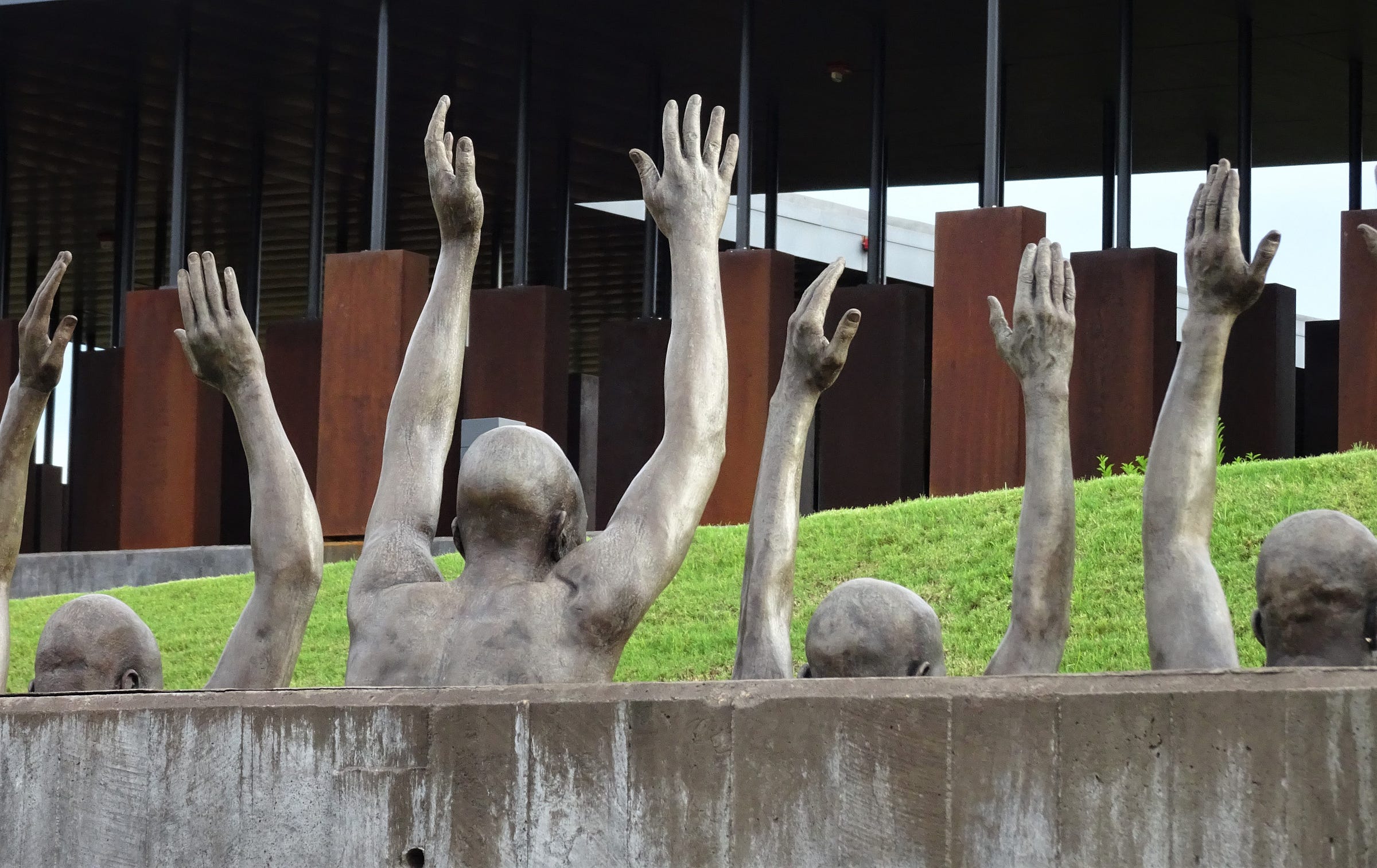Ending Slavery is on the Ballot
“Slavery did not end; it evolved.”
Those words at The Legacy Museum in Montgomery, Alabama, explain the vision of the facility to show the through-line from slavery to racial terror lynchings to Jim Crow segregation to mass incarceration today.
Created by the Equal Justice Initiative, which provides legal representation for wrongly-convicted prisoners, the powerful museum uses that statement about slavery from EJI’s founder Bryan Stevenson. A lawyer and author of Just Mercy (which was also made into a movie), Stevenson has long used the line to explain why more work is still needed to overcome the legacy of slavery and its continuing consequences. He explains that neither the Emancipation Proclamation in 1863 that freed enslaved persons in Confederate states nor the Thirteenth Amendment to the U.S. Constitution in 1865 actually ended slavery, in large part because it didn’t deal with the narrative of White Supremacy that justified slavery.
But even beyond that, our nation still technically allows some slavery. Yes, you read that right.
While it’s commonly said that the Thirteenth Amendment ended slavery, it actually came with a caveat. There’s literally an exception in that part of the Constitution: “Neither slavery nor involuntary servitude, except as a punishment for crime whereof the party shall have been duly convicted, shall exist within the United States, or any place subject to their jurisdiction.”
Slavery is banned, except for in prisons. That allowed the emergence of a system of “convict leasing” after the Civil War that targeted Blacks for imprisonment. States profited from leasing prisoners out to businesses, which created a financial incentive to lock up more Black men. Some large plantations that previously operated only because of enslaved labor simply shifted to leased Black prisoners. That’s why it’s often called “slavery by another name.” And it continues today through mass incarceration practices that target Black men with such disparity it’s been deemed “the new Jim Crow.”

“This clause in the Thirteenth Amendment means that slavery was never abolished but merely redefined and codified under a criminal justice system,” Mark Charles and Soong-Chan Rah wrote in their book Unsettling Truths. “To this day, slavery is alive, well, and legal in the prison system of the United States of America, under the jurisdiction of the judicial branch of our government.”
So, Charles put forth a call to action last year on our podcast Dangerous Dogma: “If we want to get rid of this White Supremacist, institutionalized racism in our country, we should probably start by actually abolishing slavery.”
In this year’s midterm elections, there are efforts to do exactly that. In just a couple weeks, voters in five states will consider proposed amendments to their state constitutions that would remove the slavery exception. And in at least one state, clergy are mobilizing in support of this overdue constitutional change.
In this issue of A Public Witness, we look at state-level efforts to undo the slavery exception with a focus on clergy in Tennessee who are speaking out. Additionally, we consider how Christians elsewhere can also advocate for prison reform.




